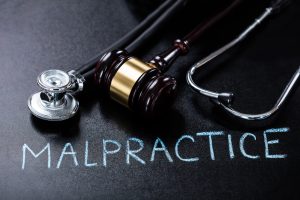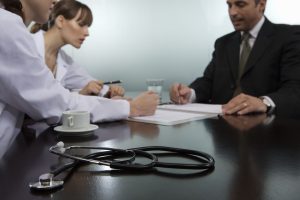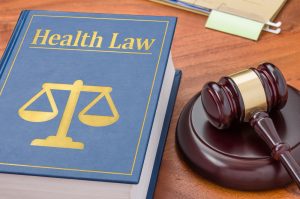In the intersections of healthcare and the legal system, the role of an expert witness nurse is pivotal. These professionals bridge the gap between two complex fields, employing their specialized knowledge to clarify medical issues for legal proceedings. The importance of such a role cannot be overstated; it demands a blend of clinical expertise and legal acumen, enabling these nurses to contribute invaluable insights in legal battles. Their participation not only aids in the administration of justice but also ensures that healthcare standards are upheld within the judicial system.

Legal nurse consultants, often referred to as nurse experts, play a crucial role in the intersection of healthcare and law. They provide essential litigation support services, which can range from reviewing medical records to testifying in court as expert witnesses. This article explores the multifaceted responsibilities of legal nurse consultants, the nuances of testifying as a nurse expert witness, and the skills required to excel in these roles.
Key Takeaways
- Legal nurse consultants, also known as nurse experts, provide critical litigation support, often reviewing medical records that serve as evidence in court.
- Testifying as a nurse expert witness involves a higher pay rate and a more active role in legal proceedings, including depositions, hearings, and arbitration.
- While legal nurse consultants and expert witnesses share some responsibilities, the roles are distinct; any nurse can serve as an expert witness if they maintain their credentials and clinical activity.
- Essential skills for effective testimony include clear communication, professionalism, and the ability to handle cross-examination.
- Building a career as a nurse expert witness involves networking with law firms, continuing education, and marketing one’s services.
This article delves into the multifaceted realm of legal nurse consulting, providing a comprehensive overview from educational pathways and certification programs for aspiring expert witness nurses to the intricate testifying process they navigate. It outlines the essential skills required for effective legal nurse consulting, common cases these expert witnesses engage with, and strategies for building a successful career in this niche field. Furthermore, it offers guidance on preparing for courtroom testimony, a critical component of being an expert witness nurse. Through this exploration, readers will gain insight into the interplay between nursing expertise and legal advocacy, underlying the significance of these professionals in ensuring fair and informed legal outcomes.
Please also review AIHCP’s Legal Nurse Consulting Program and see if it meets your academic and professional goals. The program is online and independent study and open to qualified professionals seeking a four year certification.
Overview of Legal Nursing
Understanding the Field
Legal nursing integrates the expertise of nursing practice with the legal system, providing critical insights in various legal contexts. Legal Nurse Consultants (LNCs) are registered nurses who apply their medical knowledge to the legal field, particularly in cases like medical malpractice and personal injury lawsuits. These professionals serve as a bridge, making complex medical information accessible and understandable to legal experts.
Key Responsibilities
The primary responsibilities of a Legal Nurse Consultant include reviewing and analyzing medical records, identifying deviations from standard care, and providing expert opinions on medical matters. They play a crucial role in educating legal professionals about medical concepts, which is essential for building strong legal cases. Furthermore, LNCs assist in translating medical jargon into clear language for juries and other non-medical personnel involved in legal proceedings.
LNCs are often employed in various environments such as hospitals, law firms, insurance companies, and healthcare organizations. Their expertise is not only valuable in courtrooms but also in developing legal strategies, preparing legal documents, and offering guidance on healthcare-related legal cases. By combining their nursing knowledge with legal insights, they ensure accurate representation of medical facts, thereby influencing the outcomes of legal disputes and enhancing the standards of healthcare practice in legal contexts.
Educational Pathways for Legal Nurses
Nursing Programs
A career as a legal nurse consultant begins with obtaining a nursing degree. Prospective legal nurses generally start with either an Associate’s Degree in Nursing (ADN) or a Bachelor’s Degree in Nursing (BSN). An ADN program, which can be completed in about 24 months, qualifies graduates to take the NCLEX-RN exam and apply for RN licensure. This pathway is suitable for students eager to enter the workforce promptly or those looking to minimize educational expenses.
However, for those aiming to specialize as legal nurse consultants, a BSN is often preferred or required by employers. A four-year BSN program provides a comprehensive curriculum that includes coursework in nursing informatics, law and ethics in nursing, and risk reduction. These programs not only prepare students for a broader range of job opportunities and potentially higher salaries but also lay the groundwork for graduate studies, which can further enhance career advancement.
Specialized Courses
After completing the foundational nursing education, aspiring legal nurse consultants can enhance their expertise through specialized training programs or courses. These educational offerings cover a variety of pertinent topics such as medical record analysis, legal terminology, healthcare laws and regulations, and expert witness testimony. Good legal nurse consulting education programs such as the American College of Legal Nursing incorporate case studies, allowing students to apply their knowledge to real-world scenarios, thus honing their critical thinking skills.
These specialized courses are crucial for understanding the various healthcare-related legal issues, such as medical malpractice claims, personal injury lawsuits, and workers’ compensation disputes. By engaging with these practical applications, students not only learn to analyze and evaluate complex cases effectively but also prepare for roles that require them to serve as liaisons between the healthcare and legal sectors.
By following these educational pathways, individuals can build a solid foundation in nursing and gain the specialized knowledge necessary to excel as legal nurse consultants.
Legal Nurse Certification Programs
Available Certifications
The American College of Legal Nurse Consulting offers a four year certification for nurses looking to earn certification as a Legal Nurse Consultant. The program is online and independent study and open to qualified professionals. The program leads to a four year certification for nurses. Please review and see if the program meets your academic and professional goals and needs.
AIHCP also offers certifications for healthcare professionals who are seeking certification in Healthcare and Malpractice Consulting, as well as Healthcare Ethics Consultant Program.
Requirements
To pursue a career as a certified legal nurse consultant, individuals must first obtain an associate degree in nursing or a Bachelor of Science in Nursing, followed by passing the NCLEX-RN exam to become a registered nurse. While certification is not mandatory, it significantly enhances a nurse’s credentials in the legal consulting arena. The certification process involves passing the AIHCP’s core courses, which confirms that the nurse has met the necessary educational and experiential standards.
Continuing education plays a critical role in maintaining certification and licensure. Legal nurse consultants are encouraged to continually expand their knowledge on relevant clinical and legal topics, and hone skills such as research and writing, which are crucial in this specialty practice. This ongoing education ensures that legal nurse consultants remain valuable to their clients and employers by staying current on medical and legal issues.
By adhering to these pathways and requirements, nurses can establish themselves as proficient legal nurse consultants, equipped with the credentials and knowledge necessary to excel in this niche field.
Understanding the Testifying Process
Pre-Trial Preparation
Legal nurse consultants play a critical role in the pre-trial phase, especially in medical malpractice and personal injury cases. They start preparing for trial from the day they are assigned a case, which involves reviewing medical records, developing a treater list, and creating medical chronologies or summaries. These documents are essential as they help attorneys understand the medical aspects of the case and serve as a foundation for developing trial strategies.
Moreover, legal nurses are responsible for identifying additional treaters and obtaining their records. This proactive approach prevents the last-minute rush to gather necessary documents and ensures that all pertinent information is available well in advance of the trial. They also prepare reports on expert opinions, which are crucial for fine-tuning trial strategies and making informed decisions during the trial.

During the Trial
During the trial, the role of the legal nurse consultant expands to include advising attorneys on the accuracy and completeness of medical expert testimonies. They are often present in the courtroom, assisting the legal team by providing insights into medical terminology and procedures, which enhances the effectiveness of the arguments presented.
Legal nurse consultants may also testify as expert witnesses, where they share their specialized knowledge on nursing standards of care and the extent of injuries sustained by plaintiffs. Their testimony can significantly influence the jury’s understanding and the overall outcome of the case. The ability to articulate complex medical information in a clear and accessible manner is crucial, as it helps bridge the gap between medical facts and legal arguments.
In summary, the involvement of legal nurse consultants in both the pre-trial preparation and during the trial is vital. They ensure that all medical aspects of the case are accurately represented and understood, which is essential for achieving just and informed legal outcomes.
Skills Essential for a Legal Nurse Consultant
Analytical Skills
Legal nurse consultants are required to possess strong analytical skills that allow them to review and interpret medical records critically. These professionals must understand the legal implications of medical practices by applying the 4 Ds of medical malpractice: duty, dereliction of duty, direct causation, and damages. Their ability to discern whether these elements are present in a case is crucial for determining the validity of claims. Analytical thinking extends beyond mere critical analysis; it involves a deep understanding of how medical negligence may lead to patient harm and how it can be demonstrated in legal contexts.
Communication Skills
Effective communication is paramount for legal nurse consultants. They must articulate complex medical information clearly and concisely to various audiences, including attorneys, judges, and juries. This requires excellent verbal and written communication skills, ensuring that all interactions and documentation are understandable and professionally presented. Active listening is also a critical component, as it helps in understanding and addressing the concerns of all parties involved in legal proceedings. Moreover, non-verbal cues such as facial expressions and body language play a significant role in building trust and rapport. Legal nurse consultants should be adept at using patient-centered communication techniques, such as teach-back methods, to confirm understanding and foster adherence to medical advice.
Professionalism on the Stand
Besides being an expert in their field, a Nurse Expert Witness should also be proficient at testifying in a clear manner and capable of conveying a sense of professionalism and competence on the witness stand.
Handling Cross-Examination
When serving as an expert witness, you might need to develop exhibits or suggest case strategies. Being resourceful can help you find the information you need to support your testimony. Additionally, strong organizational skills are crucial for taking complex information and organizing it in a way that makes sense to others.
These skills not only enhance the effectiveness of legal nurse consultants in their roles but also contribute significantly to the outcomes of legal cases involving healthcare issues.
Challenges and Rewards of Being a Nurse Expert Witness
Common Challenges Faced
Being a nurse expert witness is not as easy as some might expect. The responsibilities are demanding, and the requirements are many. One of the primary challenges is the need to maintain a sound reputation for honesty and sustain the credentials to back up their testimony. Additionally, the emotional toll of vicariously coping with patients’ trauma can be significant.
Personal and Professional Rewards
Despite the challenges, there are numerous rewards to being a nurse expert witness. These professionals can earn a substantial income for their efforts. More importantly, they play a crucial role in legal outcomes, providing expert opinions that may very well rest on the decision of a malpractice case. The sense of contributing to justice and the legal process can be immensely satisfying.
Balancing Clinical and Legal Work
Balancing clinical duties with legal responsibilities can be tricky. It requires excellent time management and organizational skills. However, the dual role can also be enriching, offering a diverse and dynamic career path.
The journey to becoming a nurse expert witness is demanding but ultimately rewarding, offering both financial and professional satisfaction.
Legal and Ethical Considerations
Maintaining confidentiality is a cornerstone of ethical expert witness testimony. Any action attempting to mislead counsel, factfinders, or community about the forensic nurse’s professional background or qualifications fails to uphold the ethical standards. Legal nurse consultants must ensure that all patient information is kept confidential and only disclosed when legally required.
Legal nurse consultants must adhere to all relevant legal standards and guidelines. This includes understanding the legal implications of their testimony and ensuring that their professional opinions are based on sound medical knowledge and evidence.
Ethical dilemmas can arise during testimony, such as conflicts of interest or pressure to alter testimony. Legal nurse consultants must navigate these challenges while maintaining their professional integrity. They should be prepared to address any ethical issues that may arise and seek guidance when necessary.
Ethical considerations are paramount in ensuring the integrity and credibility of the legal nurse consultant’s testimony.
Common Cases Legal Nurses Work On
Legal Nurse Consultants (LNCs) frequently engage in a variety of cases where their specialized knowledge significantly impacts legal outcomes. Two of the most common types of cases they work on are medical malpractice and personal injury cases.
Medical Malpractice

Medical malpractice cases are a primary area where Legal Nurse Consultants provide essential insights. In these cases, LNCs review patient records, analyze the care provided, and identify deviations from standard medical practices. Their expert testimony can clarify whether the healthcare provider’s actions or omissions breached the duty of care owed to the patient, directly causing harm. This role is crucial, as their professional evaluation helps to establish the presence of negligence necessary for the case.
Personal Injury Cases
In personal injury cases, Legal Nurse Consultants assess the extent of injuries claimed and correlate them with the evidence presented. They evaluate medical records and other related documents to determine the impact of an injury on the victim’s life and the ongoing medical needs that may arise as a result. Their findings support legal arguments by providing a clear, medically informed perspective on the injury’s consequences, which is vital for the resolution of these cases.
In both scenarios, the expertise of Legal Nurse Consultants bridges the gap between medical understanding and legal representation, ensuring that factual, medical insights inform the judicial process. This integration of knowledge helps to uphold justice and accuracy in the handling of medically related legal cases.
Nursing Board Proceedings
Nurse expert witnesses are often called upon in nursing board proceedings to evaluate whether a nurse’s actions were in line with professional standards. Their expertise is essential in determining the outcome of disciplinary actions and ensuring that the nursing profession maintains high standards of care.
The need for expert nurse witnesses is growing, and the job is becoming increasingly important in various legal contexts.
Successful Testimonies
One of the most rewarding aspects of being a nurse expert witness is the opportunity to contribute to cases that have significant impacts on people’s lives. For instance, Jennifer from New York shared her experience of testifying in a medical malpractice case where her detailed analysis of medical records was crucial in securing a favorable outcome for the plaintiff. This case not only highlighted her expertise but also underscored the importance of having a solid clinical foundation.
Lessons Learned from Failures
Not all testimonies lead to successful outcomes, and there are valuable lessons to be learned from these experiences. One expert nurse witness recounted a case where a lack of specialized knowledge in a specific clinical area led to a less favorable outcome. This underscores the importance of focusing on areas where you have a strong clinical background, as best practices advise legal nurse consultants to work only on cases in which they have a solid clinical foundation.
Impact on Legal Outcomes
The impact of a nurse expert witness on legal outcomes cannot be overstated. In many cases, their testimony can be the deciding factor in the jury’s decision. For example, in a wrongful death case, the expert’s testimony on the standard of care provided crucial insights that helped the jury understand the nuances of the case. This not only demonstrates the intellectual stimulation involved in working on such cases but also the personal reward of making a consequential contribution to people’s lives.
Working on cases is intellectually stimulating, since no set of facts is ever the same. The work is also personally rewarding, because you are making an important contribution to work that is consequential to people’s lives.
Building a Career as a Legal Nurse Consultant
Networking Tips
Networking is a pivotal strategy for legal nurse consultants aiming to establish and grow their independent practices. Engaging actively in professional associations, such as the American Association of Legal Nurse Consultants, is beneficial. Participation goes beyond membership; it involves attending meetings, joining committees, and volunteering for projects, which enhances visibility and credibility among peers. Additionally, leveraging social media platforms like LinkedIn and Facebook can connect legal nurse consultants with potential clients and other professionals in the field. Regular interaction through these channels, combined with traditional networking at conferences and local events, provides multiple touchpoints with prospective clients, crucial for business development.
Job Market Insights
The demand for legal nurse consultants continues to rise, attributed to their specialized knowledge in bridging healthcare and legal issues. The U.S. Bureau of Labor Statistics anticipates a 7% growth in registered nurse positions from 2019 to 2029, surpassing the national average for all occupations. This growth reflects the increasing need for healthcare professionals who can also navigate legal complexities. Legal nurse consultants can find opportunities in various settings, including law firms, insurance companies, and healthcare facilities, where they review medical records, provide expert testimony, and assist in case management. The potential for career advancement is significant, with options to pursue further certifications like the Legal Nurse Consultant Certified (LNCC) credential or advanced degrees, which open doors to higher-level roles and increased income potential.
The Financial Aspects of Testifying as an Expert Witness
Compensation Rates
Nurse expert witnesses can earn a substantial income for their services. Compensation rates vary widely based on factors such as experience, specialty, and the complexity of the case. Typically, these rates are negotiated with the respective attorney. Here is a general breakdown of potential earnings:
| Experience Level | Hourly Rate (USD) |
|---|---|
| Entry-Level | $100 – $150 |
| Mid-Level | $150 – $250 |
| Senior-Level | $250 – $400+ |
Billing Practices
Billing practices for nurse expert witnesses can differ, but they generally include charges for time spent on case review, report writing, and actual testimony. It’s crucial to maintain detailed records of all activities and time spent. Common billing practices include:
- Hourly billing for case preparation and testimony
- Flat fees for specific services like report writing
- Retainers to secure services in advance
Negotiating Fees
Negotiating fees is an essential skill for nurse expert witnesses. The negotiation process should be transparent and reflect the expert’s level of expertise and the demands of the case. Factors to consider during negotiations include:
- Complexity of the case
- Time commitment required
- Travel expenses
- Market rates for similar services
Expert witnesses provide technical or scientific testimony and are compensated based on negotiations with the respective attorney. Funding and compensation should be clearly outlined in a contract to avoid any misunderstandings.
By understanding these financial aspects, nurse expert witnesses can ensure they are fairly compensated for their valuable contributions to legal cases.
Preparing for Successful Courtroom Testimony
Legal nurse consultants play a crucial role in the preparation for courtroom testimony, ensuring that all medical aspects of the case are thoroughly understood and well-represented. This preparation begins from the moment the case is assigned, with the development of a comprehensive trial notebook that includes reports, medical records, and a PowerPoint presentation if necessary. By starting early, legal nurse consultants avoid the rush of last-minute preparations and ensure a smooth transition to the trial phase.
Mock Trials
Participating in mock trials is an essential part of preparation. These simulated courtroom settings provide a valuable opportunity for legal nurse consultants to practice and refine their testimony. Mock trials help in understanding the dynamics of a real courtroom and allow consultants to receive feedback on their presentation skills, including their ability to communicate complex medical information clearly and effectively. This rehearsal process is critical in building confidence and ensuring that their testimony is impactful and persuasive.
Dressing Professionally
The importance of dressing professionally cannot be understated in the context of courtroom appearances. Appropriate attire not only reflects respect for the court but also establishes the credibility of the legal nurse consultant as a serious and professional witness. It influences how jurors, judges, and other courtroom participants perceive their expertise and reliability. Therefore, choosing the right attire is a strategic aspect of courtroom preparation, contributing to the overall effectiveness of the testimony.
Throughout the preparation process, legal nurse consultants engage in various activities to ensure their readiness for trial. They develop and update medical chronologies and summaries, create and maintain lists of treaters and providers, and prepare documentation such as timelines, graphs, and charts that may be used as demonstrative evidence. They also coordinate with medical experts to review and discuss the medical issues pertinent to the case, ensuring that their testimony is well-supported by factual evidence and expert opinions. This comprehensive approach to trial preparation is pivotal in helping attorneys present a well-structured and convincing argument in court.
Conclusion

Throughout the exploration of the role and significance of legal nurse consultants, it’s evident that these professionals serve as a critical nexus between the realms of healthcare and law. By leveraging their specialized knowledge and skills, legal nurse consultants illuminate complex medical issues within legal disputes, ultimately contributing to the fair administration of justice. Their role in analyzing medical records, offering expert testimony, and aiding in the navigation of medical malpractice and personal injury cases underscores the invaluable insight they bring to legal proceedings. While many LNCs primarily focus on reviewing medical records and providing litigation support, those who choose to testify as expert witnesses play a crucial role in legal proceedings. Testifying as an expert witness not only demands a deep understanding of nursing practices but also the ability to communicate findings clearly and professionally in court. This dual capability of consulting and testifying enhances the value of nurse experts in legal cases, making their expertise indispensable. As the demand for expert testimony continues to grow, the opportunities for nurses in this specialized field are both lucrative and impactful. The journey from acquiring foundational nursing education to excelling as a certified legal nurse consultant illustrates a pathway marked by dedication, continuous learning, and a commitment to bridging two vital sectors of society.
As individuals embark on or advance within this compelling career, the importance of ongoing education, certification, and networking cannot be overstressed. The evolving nature of both healthcare and legal fields means that legal nurse consultants must remain at the forefront of current practices and procedures to effectively contribute to case outcomes. Their work not only supports the legal process but also upholds the integrity and standards of healthcare practices through meticulous analysis and informed testimony. For those interested in making a meaningful impact at the intersection of law and medicine, a career as a legal nurse consultant offers a unique and rewarding opportunity to enhance both sectors.
Please also review The American College of Legal Nurse Consulting and it’s Legal Nursing Certification. The program is designed to train nurses and certify them into the field of Legal Nursing. AIHCP also offers certifications for healthcare professionals who are not nurses and are looking to work in Healthcare Legal and Malpractice Consulting, as well as program to in healthcare ethics. The programs are online and independent study and open to qualified professionals. The courses lead to a four year certification which is renewed every four years. Healthcare professionals wishing to enhance their professional resume and work in legal field can benefit from certifications.
FAQs
- What are the responsibilities of a nurse serving as an expert witness?
A Legal Nurse Consultant (LNC) is a registered nurse who uses their expertise in healthcare to consult on medical-related legal cases. They assist attorneys by reviewing medical records, providing expert opinions, and sometimes testifying in court. Expert nurse witnesses are responsible for providing critical insights into nursing practices to judges and juries. Their expertise significantly influences legal decisions, thereby impacting the U.S. legal system. The key responsibilities include reviewing and analyzing medical records, preparing reports, assisting in case preparation, and offering expert opinions on healthcare-related issues in legal cases.
- How does a legal nurse consultant differ from an expert witness? Legal nurse consultants can act as expert witnesses, either defending healthcare providers or supporting the patient’s legal team. An expert witness typically possesses extensive knowledge through advanced degrees, licenses, and research in their field. Many also hold board certifications. While both roles involve expertise in nursing, an LNC primarily focuses on consulting and reviewing medical records, whereas a Nurse Expert Witness is more involved in testifying and providing expert opinions in legal proceedings.
- What role does a testifying nurse expert play during depositions and trials? A testifying nurse expert’s primary duty is to review medical records and assess whether the standard of care was met. They usually prepare a written report for the attorney, which is then submitted to the court. Unlike legal nurse consultants (LNCs), nurse experts may also be required to testify in depositions or trials. Nurse Expert Witnesses are often required in cases of medical malpractice, personal injury, and nursing board proceedings. They provide critical insights and testimony that can influence the outcome of these cases.
Effective testimony requires clear communication, professionalism, and the ability to handle cross-examination. A Nurse Expert Witness must convey their expertise confidently and clearly to the court.
- Who is qualified to be a forensic expert witness in nursing? Nursing students who pursue a Master’s Degree with a specialization in forensic nursing are trained to examine victims, manage evidence, and provide courtroom testimony about their findings. To become an LNC, one typically needs to be a registered nurse with clinical experience. Additional certification in legal nurse consulting can enhance credibility, but it is not always required.
Additional Resources
“Legal Nurse Consultant”. (2023). Every Nurse Staff. Every Nurse. Access here
“How Is a Legal Nurse Consultant Used in a Trial?” (2015). Center for Legal Studies. Access here
“First Deposition as an Expert?”. Expert Witness Nurses. Access here
Lott, J. et, al. (2001). “The Nurse Expert Witness”. Science Direct. Access here







